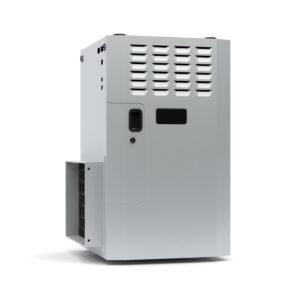Heating systems and snow are pretty synonymous this time of the year. The snowier and colder it gets, the more you rely on the warmth of a heating system to keep you comfortable and happy. But snow has some unintended consequences that could hamper your heating equipment and home comfort.
We’re going to focus in on what snow does to your heating system and how snowy weather can be a problem in some ways. Because our winters can be a bit unpredictable (especially after such a crazy summer and fall), it’s important to know what you’re up against in case a large winter storm hits us.
Of course, the best thing you can do for your heating system at the moment is to schedule a heating tune-up in Milton, WI. This will allow a professional technician to adjust, maintain, and inspect your heating system so that it’s ready for the cold months ahead!
The Temperature Drop
First, we need to cross one item off our list. Snow only arrives when the atmosphere is cold enough to freeze water. This means that if there’s snow out, it’s likely below freezing, so your heater should already be hard at work keeping your home warm.
Don’t wait until it snows to check on your heating system, because by then it’s already quite cold in your home. Your home should be warm and cozy before the snow hits, so it’s ready for the drastic temperature drop when it finally does!
Freezing Pipes and Closed Cabinets
Your heat needs to circulate throughout your home, otherwise you risk having pipes and water lines freeze. This can be a huge issue when temperatures get extremely cold, and when snow starts covering your home.
Keep cabinet doors open when there are pipes hidden behind them. This will ensure the heat of your heating system gets to the pipes and keeps them relatively warm so that they don’t freeze.
Unblock the Exhaust Port
If you have a gas furnace, it requires an exhaust port to vent fumes to the outside. If this exhaust port gets clogged up with snow or ice, you might have carbon monoxide and other toxic fumes get stuck inside your home and leak out to where you might breathe them in.
Check on your exhaust port after a snowstorm to ensure it’s not blocked.
Change the Air Filter
Of course, the air filter of your heating system must be changed every 1-3 months to ensure maximum efficiency and comfort. This can be done by homeowners, and you can even call our team for help if you’re confused.
Invest in Maintenance or Repairs
If your heating system is showing signs of a problem, aside from having a clogged air filter or port exhaust, then you’ll need to schedule an appointment. Only a licensed professional technician can open up your furnace or heat pump to determine what the problem is. You risk a safety hazard or losing your heat entirely if you try to DIY a solution to a complex problem like a heater malfunction.
Contact 24Hr Home Comfort Services for help with your heating system, and for more winter preparation tips! Your Heating and Cooling Specialists.

